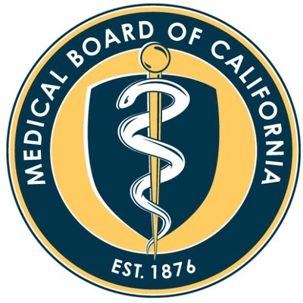What is the Medical Board's Division of Medical Quality?
The DMQ is simply a branch of the Medical Board of California that has investigators, attorneys and reviewers who focus on enforcement of the MBC's rules, regulations, safety standards as well as state and federal law. It functions as a quasi-police unit and there is substantial overlap between this portion of the medical board and pure law enforcement agencies.
DMQ Enforcement Process
Investigation: The Division of Medical Quality (DMQ) supervises an extensive enforcement team responsible for receiving, screening, and investigating complaints and reports of physician misconduct or negligence. This team operates from headquarters in Sacramento and across twelve district offices in California.\
An investigation can be routine and friendly but this is not a social interaction. The investigation will focus on accusations against you. Most complaints are round filed and go nowhere. If an investigation is initiated, someone has found at least potential merit to the claims.
Evidence Review and Transmission: If DMQ’s investigative staff, supported by physician consultants and external expert reviewers, find sufficient evidence for disciplinary action, the case is sent to the Health Quality Enforcement (HQE) Section of the Attorney General’s Office, which has six statewide offices.
Formal Charges: HQE's deputy attorney general files an “accusation,” a formal statement of charges, triggering due process rights for the physician. There are limited time frames to respond and the standard form provided to accused physicians is often inadequate to protect all of your due process and fair hearing rights.
Hearing Process: Without a settlement, the case moves to an evidentiary hearing conducted by an administrative law judge (ALJ) from the Medical Quality Hearing Panel under the Office of Administrative Hearings. Both sides present their cases. Once concluded, the ALJ drafts a proposed decision with findings, conclusions, and recommended discipline.
Final Decision: The proposed decision is reviewed by a DMQ panel (seven members: four physicians and three public members). This panel makes the final disciplinary decision, which is subject to up to three levels of court review.
Key Information
Length of Process: Contested disciplinary cases often take 5-7 years, during which physicians can usually continue practicing medicine. This includes appeal time. The time from investigation to a hearing can be a year or even less.
Grounds for Action: As per Business and Professions Code section 2234, disciplinary actions are based on:
Gross negligence (severe departure from professional standards).
Repeated negligent acts.
Conviction of a Crime even if not related to the medical practice
Drug or alcohol use or DUI arrests
Domestic Violence arrests/convictions
Dishonesty or corruption tied to the physician’s qualifications, duties, or conduct.
Violations of the Medical Practice Act.
Medical Malpractice Settlements or Judgments
Peer Review actions & suspensions
Burden of Proof: The Board must prove its case with “clear and convincing evidence to a reasonable certainty.”

